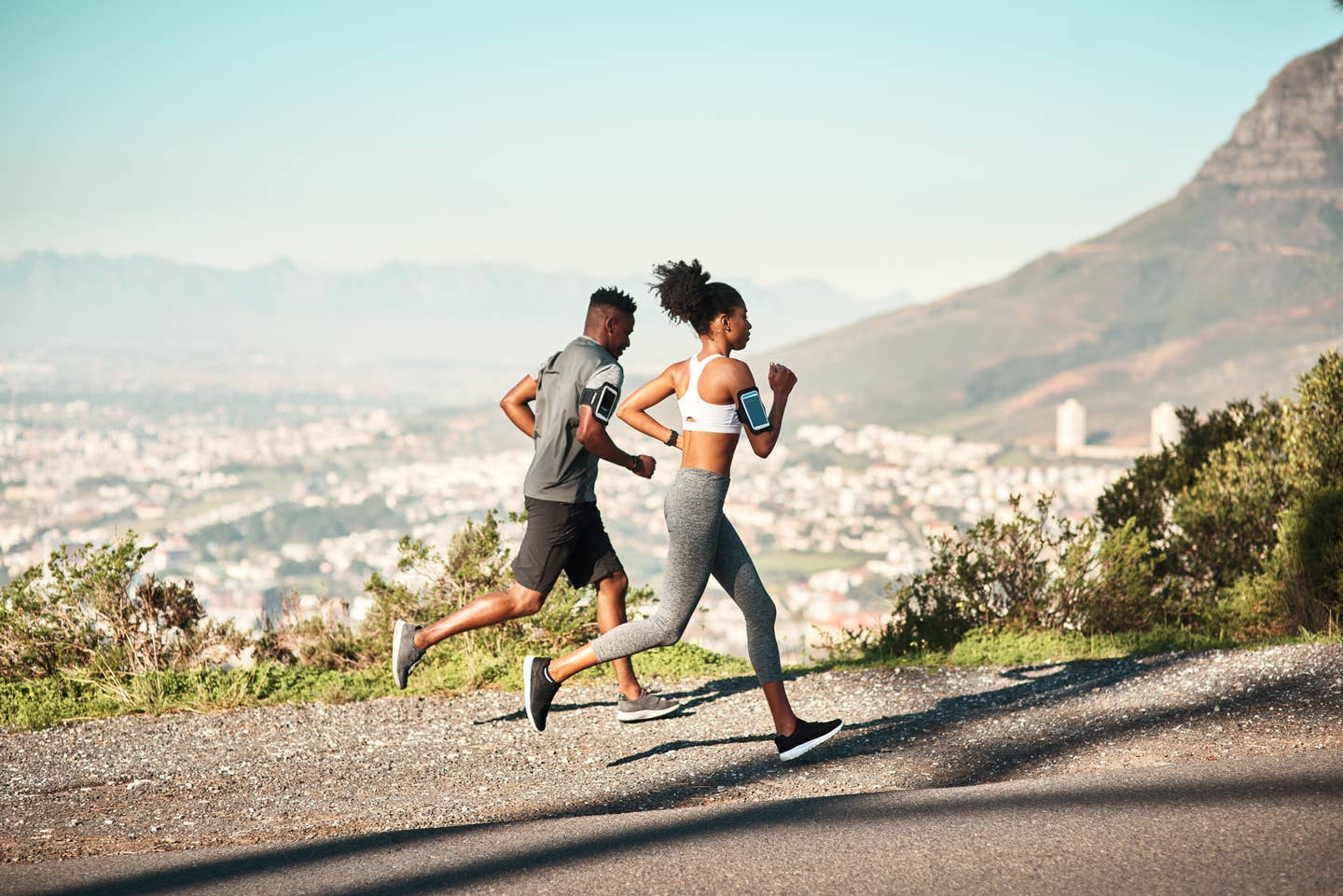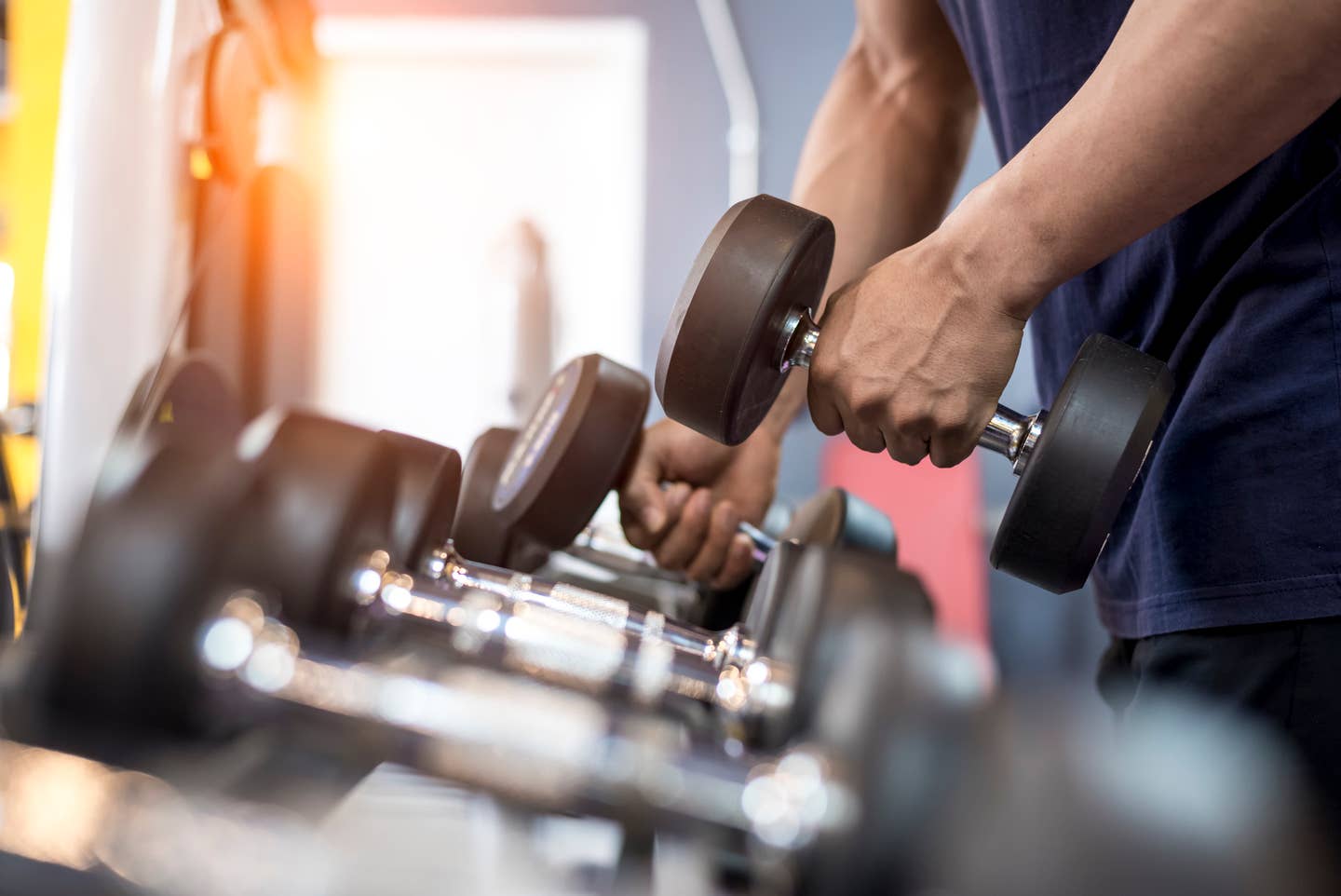
A Vegan Athlete’s 5 Simple Tips to Get Protein on a Plant-Based Diet
It’s hard to have an eight-pack and not be proud of it, but vegan Brazilian Jiu-Jitsu athlete Will Brooks is pretty humble about his fitness, considering he built his body back after a traumatic sports injury that left him in tremendous pain and unable to compete. He had spine surgery to help him overcome an injury that occurred while he was lifting weights. He had his spiine fused and when recovering, went vegan since he had heard that it would help him lower inflammation and recover faster. The injury ended up changing Will's life for the better, he says now, since it sent him down a path to a plant-based diet to get on the road to a faster recovery.
Brooks is a mixed martial artist who was fighting at the highest level of competition, but to be specific he is a "Brazilian JiuJitzu practitioner" who has been grappling since he was a kid. "Wrestling runs in my family," he explains, so when his wrestling career came to an end he kept going with jiujitsu. . "Brazilian jiujitsu is not so much of a striking martial art but you want to close the gap and get your opponent on the ground and use holds to submit your opponent with holds. Basically, anything that makes your opponent feel pain and either tap out or tap out. "it's not a walk in the park," says Brooks. "You can control how much pain you want to endure. So if your opponent locks up some kind of submission on you, you can decide whether you want to fight through it or tap out."
He is a second-degree purple belt and training for jiujitsu is one of "the biggest passions in his life" but until he can get back in the ring, he still works as a videographer, creating videos for clients such as engagement videos or modeling videos. "It's something I am passionate about along with jiujitsu" and it's part of what helps him maintain his happiness along with his martial arts career.
He had read that going plant-based could help get athletes back into action, and he used it to return to the life and workouts he loved. His comeback is now something he shares with others to help athletes suffering injuries to heal, feel stronger than ever, and learn about the power of fueling up with plant-based protein.
In a recent interview, Brooks explains how easy it is to build muscle and get enough protein on a vegan diet, despite the myth that you can't get enough protein to workout and train at the highest levels on plant-based food alone. Below are some of his tips for any athlete who is considering going plant-based, on how to harness the power of a protein-filled vegan diet.
How this athlete used a vegan diet to recover faster and get back to the gym
"The story about how I transitioned to a vegan lifestyle is unique in itself. It started years before I went vegan. I met this big guy at the gym and he looked like a linebacker. We were talking about routines and weights and supplements and diet. And he told me he was vegan and I thought he was lying to me because I thought there is no way he is getting enough protein from peanuts or chickpeas or pea protein, or whatever. He looked like a linebacker!
But then I met my future wife and she was vegan. She was never very forceful about it but she eats vegan. She would show me videos of animals being slaughtered and I would just grimace and look away. I didn't want to deal with it. I managed to stay nonvegan for so long because I shut myself off from seeing animals being hurt.
"I tried being vegan once and failed at it. I went back to my own way. I then tried it again and I stopped eating cows. And then I stopped eating pigs. and then I stopped eating chicken and turkey. And it was around that point that I hurt my neck. I had been doing barbell crunches on one leg, 275 pounds. And me being the all or nothing person I am, I was not doing the correct form, and my knee would hit the ground, and eventually, I was doing it wrong and I blew out my disc. It hurt to walk, just the vibration of when I would put my foot on the ground. I needed surgery, there was no way around it. It was to the point where I was considering giving up jiujitsu and I thought maybe Im just getting old. but it was because if what I was eating was all meat-based, which is very inflammatory.
"I was injured and I had my surgery and I had to sit still while the screws had time to settle. and if you are injured it's hard to eat healthy in that state.I lost all my muscle mass and put on a lot of fat. And I was depressed. But then when my doctor gave me permission to go, I went back and jumped back in too hard. And then my neck was fused. and then Margie, the vegan angel she is kept sprinkling hints here and there. She showed me vegan athletes and she showed me what happened to animals. And when people think they go vegan, they don't want to see what is going on with animals. But I never want anyone to feel bad about that. ... it's your journey and initially, I went vegan because I thought it could help my joints. and withint 2 weeks the pain in my neck was gone and the pain in my elbow and then I was able to push the weight like I was 18 again, and by then I was 34.
"I got back to where I was when I was pre-injury. And then I started lifting even more. I have metal in my neck, I have had plenty of injuries like broken ribs .. but once I stuck with it for 2 weeks all that pain was gone. And the amazing thing is once I was well into being plant-based I thought I need to stop looking away from what animals go through so I started to watch videos and learn more. So here I am learning empathy because I needed to feel better. My selfish beginnings then led to empathy and I didn't want to say I was fully vegan until I was ready. I didn't start off as vegan for the animals but they are a huge motivator and anchoring for the rest of my life. You can still be muscular and strong. It's okay to be a man and to care about the animals too.
"Now, I think about that big linebacker and how I thought he was lying but I realize he wasn't and now when people ask if I'm supplementing, then I think it's a compliment. Another guy at the gym asked if I was vegan and I said yes and then he admitted he was too and we go out with that robot-like strength, and people can't believe it. I help tell people who say they gained weight. When someone goes from a meat-based diet to a plant-based diet, when you eat a meat-based food they are dense in calories, but when you switch to a plant-based diet if you are not tracking what you are doing, it can help. Since if you have a physical goal in mind if you begin to drop weight they are clearly not eating enough. Or on the other hand, people go vegan and plant-based their shopping list off processed junk food. But if you ever talk to a coach, or nutritionist, switching to a whole-food, plant-based diet, that makes the difference. That's what makes the diff. I like to make a meal plan and calculate my food one time and that makes it so much easier.
5 Tips to transition to a plant-based diet, and get the protein you need
1. Be Patient
First and foremost, you need to be patient with yourself. You’re going to make mistakes, everyone does. I did. It’s not a reason to give up. So just stay patient, Allow yourself some leeway. I’m hard on myself so I understand that feeling very much. Don’t worry about it, you’re fine."
2. Time Is On Your Side
Go slow. You don’t have to go full vegan overnight. Some people do and they’re successful with it, but don’t let that make you feel pressured. You don’t need to do anything overnight. I cut out certain groups of meat and animals over a few months period of time and then when I tried to go fully vegan, and I didn’t succeed. I messed up. So instead of giving up, you just keep trying, and you learn along the way and you’re going to make mistakes.
3. Don’t Go It Alone
If you’re not comfortable jumping on Google and doing your own research, there’s nothing wrong with hiring a coach. I do coaching for people who want to transition to a vegan lifestyle. I do coaching for people who want to transition to a vegan lifestyle and maintain muscle mass or gain muscle mass or lose fat. So, there’s nothing wrong with asking for help.
(The Beet's Beginner's Guide is a good place to get started if you're overwhelmed.)
4. Keep An Open Mind
Keep an open mind. I started trying all kinds of new foods that I never would have eaten had I not been open-minded. Things like seitan, for example. You know back when I was meat-based, I wanted to eat the leanest meat. The meat with the lowest fat and the highest protein and the lowest carbs. It was ridiculous, but now since I became vegan, the seitan I eat is actually leaner than the chicken I used to eat, and there’s no estrogen in it. It doesn’t require something to be killed. So keep an open mind. Try new things.
I used to think tofu was extremely strange and now I love it. There are so many things you can do with tofu, so don’t be scared to try new things because there’s a whole other world out there and it’s an amazing one.
5. Spice Up Your Life
Lastly, I would say learn to use spices and powders and sauces, because I see a lot of people that go vegan and they’re just throwing plain broccoli in with plain beans and plain rice and they’re struggling through it. I would struggle through that, so don’t be afraid to experiment with different spices and powders and even if it’s terrible, you know, “Okay, I don’t mix that next time.” So, get experimental, try different things. You’ll find your way I promise.
Will Brooks' 3 Tips to Get Enough Protein on a Plant-Based Diet
1. Say It With Me: I'll Have the Seitan!
There’s a variety of ways you can get protein. As a new vegan you might think, “Wow, I only have a handful of options.” But really you have a treasure chest of options. So, if you’re not even looking at the whole food plant-based options if you want to look at your seitan, your tempeh, your tofu, even your textured vegetable protein, or textured vegetable protein (TVP). Those are some of your more processed options, some less than others, but I partake in all of those. I love those.
2. Get More Protein with Black Bean Pasta
I also love protein pasta. So that’s actually a simple tip to immediately increase your protein as a vegan where you take your pasta or whatever you make your spaghetti or linguine with and you switch it out for black bean pasta or edamame pasta or any of those. You’re going to instantly increase your protein substantially. A single serving, I believe, of edamame pasta has around twenty grams of protein and that’s plant-based protein.
3. Eat More Lentils and Beans to Get Lean
And then you can go to the whole food options where you’re looking at lentils which are also a carb source. I love lentils. You’re looking at beans, black beans, pinto beans. Beans and rice? I mean come on, what kind of a combo?! You gotta love that.
Elysabeth Alfano is a plant-based business consultant and interviewer: @ElysabethAlfano at ElysabethAlfano.com.
More From The Beet






